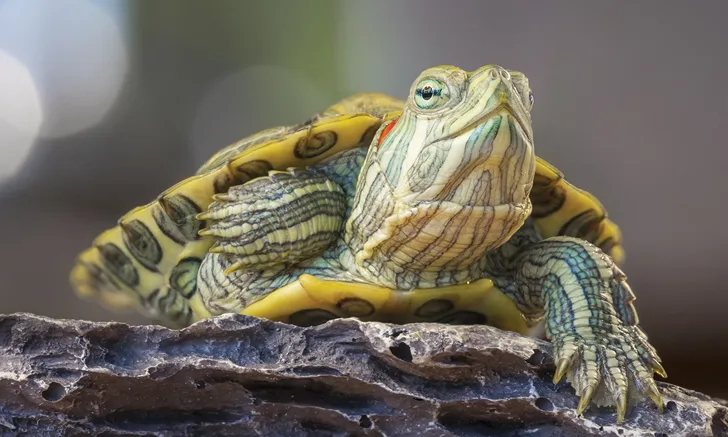Do Pet Reptiles or Amphibians Pose Any Health Risks to Humans?
Casey Barton Behravesh, MS, DVM, DrPH, DACVPM, Centers for Disease Control and Prevention, Atlanta, Georgia

It is important for owners of reptiles (eg, turtles, snakes, lizards) and amphibians (eg, frogs, toads, salamanders) to know and understand the health risks to themselves and others in their household. Reptiles and amphibians can appear healthy and clean but commonly carry Salmonella spp, and direct contact with a reptile or amphibian is not required to obtain Salmonella spp infection (ie, salmonellosis). Their habitats, food (eg, frozen or live rodents), and equipment and materials (eg, tank water) can become contaminated with Salmonella spp and other microorganisms. Reptiles and amphibians that live in water can contaminate the water with high levels of Salmonella spp, and contact with the water can lead to illness in humans.1-3
Symptoms of salmonellosis in humans include diarrhea (which may be bloody), vomiting, fever, and/or abdominal cramps. In cases of severe infection, hospitalization may be required, and Salmonella spp may spread from the intestines to the bloodstream and to other body sites, resulting in serious illness or death unless treated promptly with antibiotics. Children younger than 5 years of age, those with weak immune systems, and the elderly are at a higher risk for serious illness and hospitalization from salmonellosis.
Reptiles and amphibians, including in household or school settings, are not recommended as pets for children under the age of 5. Young children are at increased risk for salmonellosis because their immune systems are still developing and they are more likely than others to put their fingers or other items in their mouths.
Veterinarians should advise owners of pet reptiles or amphibians about the risk for salmonellosis and the simple steps that can be taken to reduce risk to household members and guests:
Children younger than 5 years of age, those with weak immune systems, and the elderly should not handle or touch amphibians or reptiles or their environment.
Hands should always be washed thoroughly immediately after handling reptiles and amphibians and/or any items from their environment.
Reptiles and amphibians and their equipment should be kept out of kitchens or anywhere food is prepared, served, or consumed. Food-preparation areas should never be used to clean reptile or amphibian habitats or anything in their habitats. These items should be cleaned outside of the home when possible. If habitats are cleaned in the bathroom, it is important to thoroughly clean and disinfect the area immediately afterward to prevent cross-contamination.
Reptiles and amphibians should never be snuggled or kissed.
Veterinarians can reinforce the prevention messages above by recommending reptiles as pets only for households or schools with children older than 5 years of age and by providing detailed instructions on proper reptile care and practices to prevent zoonoses.